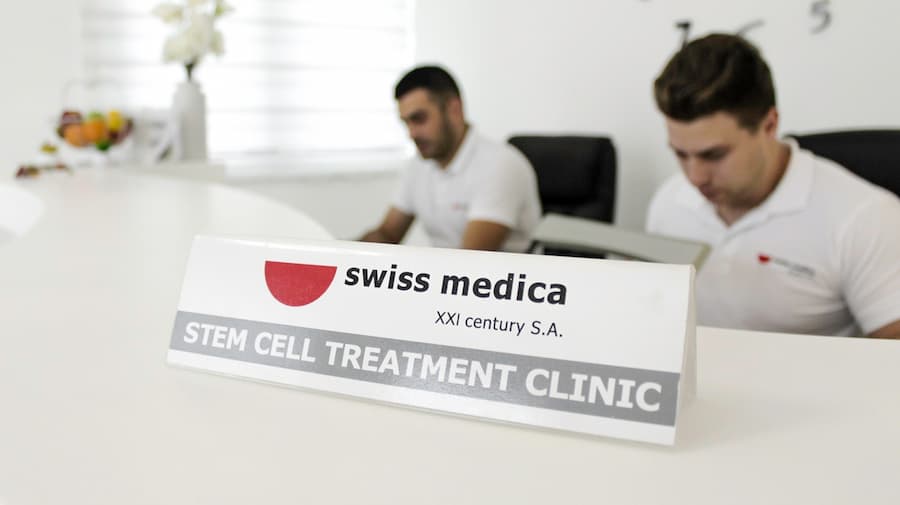Autism spectrum disorder (ASD) is a biologically based neurodevelopmental disorder. The way autism is treated differs greatly depending on where you are in the world. In recent years, Serbia has become a promising destination for families seeking effective care for children with the disorder. Autism institutions in Serbia provide a wide range of therapies, often adopting innovative approaches. Autism treatment in Serbia offers quality care at a fraction of the cost of elsewhere.
Why do families around the world choose Serbia for autism care?
The country is an increasingly popular destination for medical tourism, and more and more families are choosing autism treatment in Serbia for a variety of reasons. A key driver of this is the fact that the country offers high service quality at an affordable price. When we consider treatment for a disorder like autism, a key consideration is often cost. This is especially true in countries where medical services are expensive or hard to access. Alongside cost-effectiveness, a range of treatment options are available in Serbia, including therapies that you might not find elsewhere.
Serbia’s autism treatment centers are known for the wide variety of options they offer:
- Personalized care, which is crucial in treating autism.
- A multidisciplinary approach involving specialists such as developmental-behavioral pediatricians, child psychiatrists, child neurologists, and speech therapists.
- State-of-the-art facilities with cutting-edge technology.
A growing destination for advanced autism therapies
Autism spectrum disorder requires early diagnosis and intervention for the best possible outcomes, and families are looking for the best possible care. Serbia’s autism help is a valuable prospect for families that want to explore different options, with clinics such as Swiss Medica offering advanced therapies and cutting-edge technologies. These range from traditional methods, such as behavioral intervention, to alternative treatments for autism, like stem cell therapy.
Swiss Medica offers a wide range of therapies in Serbia, including:
- Speech and language therapy: This helps recognize communication difficulties, including articulation fluency and social language skills.
- Occupational therapy: This supports the development of fine and gross motor skills, which helps in sensory development and independence.
- Stem cell therapy: This is a newer treatment than those listed above, but it’s showing great promise. It involves the administration of stem cells to repair damaged brain cells and improve cognitive function. Many of our patients have reported a positive response to the treatment, and many studies are still being done that are showing its immense potential.

What makes autism treatment in Serbia unique?
What is it that makes autism treatment in Serbia different from other places?
Whether you’re looking for autism treatment in Belgrade or other parts of the country, you can expect a combination of advantages, including affordability, expertise, and a diverse range of treatment options. Here are the main reasons why Serbia is leading the way in terms of autism treatment.
Highly specialized clinics and medical expertise:
For example, Swiss Medica in Belgrade offers a specialized autism treatment program, led by professionals who are well-versed in the latest advancements. Here you will get personalized care from top specialists, including developmental pediatricians, psychologists, speech and occupational therapists, and behavior analysts. There is always someone on the team who can help, whether support is required for behavioral challenges, communication issues, or something else. Our specialists participate in ongoing training and stay up to date on the latest international approaches. This means autism treatment in Belgrade is at the forefront of the field.
Combining traditional and innovative treatment approaches:
Clinics that treat autism in Serbia often combine established practices, such as behavioral therapy, with cutting-edge innovative treatments. This is one of the many reasons that families choose autism treatment in Serbia. Patients benefit from well-established methods, such as cognitive behavioral therapy and speech therapy, but can also take advantage of alternative treatments for autism, such as those involving stem cells.
The combination of the tried-and-true with the latest methods helps families be more flexible in their decision-making. Whether you are interested in exploring alternative treatments for autism or prefer to stick to the standard ones, you are sure to be able to find the best fit in Serbia.
Swiss Medica is a premier stem cell therapy facility renowned for its high-quality treatments and state-of-the-art technology. It provides its patients with the personalized treatment they need and employs some of the country’s top specialists in the field.
Get a free online consultation
Please, contact our medical advisor to discuss your health condition with a specialist in regenerative medicine. You can also leave your contact details for a callback. It is free and confidential.

Medical Advisor, Swiss Medica doctor
Types of Autism Treatment Available in Serbia
Serbia offers a wide range of treatment options that cater to each child’s unique needs. Let’s see some of the popular treatment options.
Stem cell therapy for autism
This is one of the more recent treatment options available. Stem cell treatment for autism is a cutting-edge procedure that is still under development, but it has shown promising results. The goal of stem cell therapy is to regenerate tissues by introducing these cells. This can help improve the symptoms of autism, namely the behavioral and cognitive functions, especially in children.
Even though it is still an alternative treatment for autism, stem cell therapy is likely to be considered the best therapy for autism in the near future. Treatment centers for autism in Serbia offer it at a more affordable price than elsewhere, which is why Swiss Medica in Belgrade is becoming a hub for this niche.
Behavioral and cognitive therapies
These therapies, especially applied behavior analysis, are at the core of most autism treatment plans. They are used across Serbia and form the basis of autism care. Applied behavioral analysis is a well-established therapy that teaches patients new skills. It reinforces positive behavior and seeks to reduce undesirable traits. It is a well-studied and accepted treatment to help children with autism improve their communication, social, and daily living skills.
Cognitive behavioral therapy is a method that helps patients manage anxiety, depression, and other emotional challenges. Both of the above psychological treatments are available at Swiss Medica and are applied in conjunction with stem cell therapy.

Medication and supportive care
Autism spectrum disorder is generally managed with the behavioral treatment options listed above. Medications have also been seen to play a role in the holistic treatment of autism. Many sufferers also have additional psychiatric problems, such as depression, anxiety, or hyperactivity. For these individuals, medications seem to be helpful.
Medical professionals in Serbia work closely with families in identifying these problems. Together, they assess whether they need medications and which ones would be the most effective. In addition to medication, autism treatment in Serbia includes other supportive therapies, such as speech therapy, occupational therapy, and social skills training. There is no silver bullet in treating autism; many therapies are combined, and supportive care helps sufferers manage their day-to-day interactions and social lives.
Here is a concise review of the types of therapy available for autism in Serbia
| Types of Autism Treatment Available in Serbia | Stem Cell Therapy | Behavioral and Cognitive Therapy | Medication and Supportive Care |
| Description | A newer treatment involving stem cells to repair or improve brain function. | Focus on modifying behaviors and enhancing cognitive skills. | Pharmaceutical treatment and complementary supportive therapies aimed at managing symptoms. |
| Details | Limited in availability Often performed in specialized clinics. Research and clinical trials are ongoing and show immense potential. | Applied behavioral analysis and cognitive behavioral therapy are used. Techniques include social skills training, role-playing, and reinforcement strategies. | Medication options include SSRIs and antipsychotic drugs for anxiety and irritability. Supportive care includes occupational, speech, and physical therapies to enhance daily living. |
What is the cost of autism treatment in Serbia?
Autism is a chronic illness that requires ongoing treatment from highly trained specialists. For this reason, cost is often a great concern for sufferers and their families. Generally, the cost of living in the US and Western Europe is very high, so, like many other things, autism treatment in Serbia is much more affordable. Families can expect to pay significantly less for services such as behavioral and cognitive therapies or stem cell treatment for autism in Serbia. At Swiss Medica, the cost of stem cell therapy depends on many factors, but generally, the price ranges from EUR 7,000 to EUR 19,000*.
Many factors influence the exact cost of treatment, including the clinic and type of treatment, but Serbia is generally considered a very cost-effective option for families seeking quality care. Clinics for autism in Serbia offer personalized treatment packages that include multiple therapy sessions, making it easier for families to plan their budgets.
Are stem cell therapies safe and effective for autism?
Safety and efficacy are the main issues in stem cell therapies for autism. Stem cell therapies are pioneering treatments that are still being investigated, but they have shown promise in some cases. Research has shown that they have helped improve behavior, communication, and cognitive function in patients. Before starting treatment, families should consult a professional and understand the potential risks and benefits.
Are the medical staff fluent in English?
Clinics in Serbia cater to international clients, and many of the medical staff are fluent in English. This is particularly true in bigger cities, and this is one of the many reasons that autism treatment in Belgrade is so popular. Swiss Medica employs English-speaking doctors, therapists, and staff to ensure that families from abroad can communicate easily, ask questions, and fully understand the best therapies for autism.
Contact us
Get a free online consultation to learn about the expected results of stem cell therapy for your case, what is the cost of the treatment, and its duration.

Medical Advisor, Swiss Medica doctor
List of References
Lord C, Elsabbagh M, Baird G, Veenstra-Vanderweele J. Autism spectrum disorder. Lancet. 2018 Aug 11;392(10146):508-520. doi: 10.1016/S0140-6736(18)31129-2. Epub 2018 Aug 2. PMID: 30078460; PMCID: PMC7398158.
University of Kansas Medical Center, About Adult Stem Cell Therapy, https://www.kumc.edu/research/midwest-stem-cell-therapy-center/stem-cell-information/about-adult-stem-cell-therapy.html
Hodges H, Fealko C, Soares N. Autism spectrum disorder: definition, epidemiology, causes, and clinical evaluation. Transl Pediatr. 2020 Feb;9(Suppl 1):S55-S65. doi: 10.21037/tp.2019.09.09. PMID: 32206584; PMCID: PMC7082249.
Richard Champlin, MD., Selection of Autologous or Allogeneic Transplantation, Holland-Frei Cancer Medicine. 6th edition. https://www.ncbi.nlm.nih.gov/books/NBK12844
Kawicka A, Regulska-Ilow B. How nutritional status, diet and dietary supplements can affect autism. A review. Rocz Panstw Zakl Hig. 2013;64(1):1-12. PMID: 23789306.
DeFilippis, M., & Wagner, K. D. (2016). Treatment of Autism Spectrum Disorder in Children and Adolescents. Psychopharmacology bulletin, 46(2), 18–41.
Siniscalco D, Bradstreet JJ, Antonucci N. Therapeutic role of hematopoietic stem cells in autism spectrum disorder-related inflammation. Front Immunol. 2013 Jun 10;4:140. doi: 10.3389/fimmu.2013.00140. PMID: 23772227; PMCID: PMC3677147.
Qu J, Liu Z, Li L, Zou Z, He Z, Zhou L, Luo Y, Zhang M, Ye J. Efficacy and Safety of Stem Cell Therapy in Children With Autism Spectrum Disorders: A Systematic Review and Meta-Analysis. Front Pediatr. 2022 May 4;10:897398. doi: 10.3389/fped.2022.897398. PMID: 35601435; PMCID: PMC9114801.
Akat, A., Karaöz, E. Cell therapies for autism spectrum disorder: a systematic review of clinical applications. Middle East Curr Psychiatry 30, 94 (2023). https://doi.org/10.1186/s43045-023-00363-9
Villarreal-Martinez, L., González-Martínez, G., Saenz-Flores, M., Bautista-Gómez, A., Gonzalez Martinez, A., Ortiz-Castillo, M., Robles-Sáenz, D., & Garza-López, E. (2022). Stem cell therapy in the treatment of patients with autism spectrum disorder: A systematic review and meta-analysis. Stem Cell Reviews and Reports, 18. https://doi.org/10.1007/s12015-021-10257-0
Medical Advisor, Swiss Medica doctor
MD, Pediatrician, Regenerative Medicine Specialist







